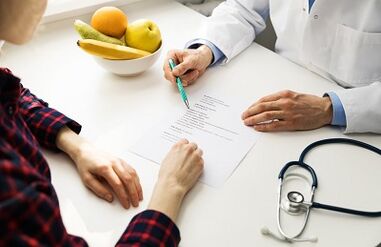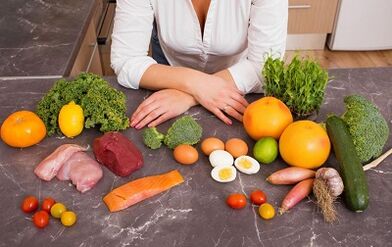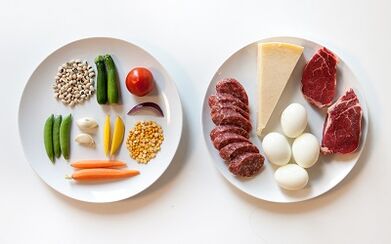
Gotta is a disease associated with a violation of the metabolism, when an excessive amount of uric acid accumulates in the body.Uric acid salt (sodium uratory) begins to be deposited in the joints, which leads to their inflammation and other organs.
In the risk area there are people who use meat, spicy dishes that abuse alcoholic beverages in large quantities.Other factors related to the development of the disease may be obesity, a sedentary lifestyle, nervous stress, inheritance.
To confirm the diagnosis, a blood test for the uric acid content is performed.When analyzing the urine, the protein is diagnosed inside.
Very often, gout affects the joints near the thumbs.Gotta attacks in most cases occur at night or early in the morning.The acute period of the disease can last up to seven days.The disease is chronic with periodically repeated recidals.
Over time, the attacks are repeated more and more often, the disease affects new joints and the destructive of the bones can occur.For more than four sick years, the dense yellowish tubercles are formed under the joints for more than four years.From time to time, these formations can burst, the white crumbs are distinguished from them.
A complication of the gout can be the formation of kidney stones, hypertension, kidney colic, damage to heart muscle and cardiac valves.
Diet with gout
The diet with gout on the legs involves the refusal of eating food saturated with purines.To reduce uric acid content in the body, it is necessary to significantly limit the consumption of animal proteins.
Some types of meat and fish, offer, yeast, caviar, mushrooms, legumes, chocolate should be excluded.50% of the purines are released in broth during cooking, so it is not recommended to use broths.This applies to any broth (meat, fish, mushrooms).Simple carbohydrates and saturated fats also represent a certain danger.

In the treatment of gout, it is important to eat regularly, do not starve and do not eat too much.Fasting, like excess of nutrition, causes the release of uric acid.In the presence of excess weight, the extremely strong weight loss is undesirable.The food should be fractional, at least five meals a day.
It is recommended to organize days of fasting in a week, fruit and vegetables.In the remaining days (2-3 times a week), the use of a small number of lean products and fish products in boiled or cooked form is allowed, in the aggravation phase they are completely excluded.
With gout, the use of a sufficient amount of liquid is required, while canned and carbonated drinks must be avoided.Alcohol is severely prohibited in any doses, including low alcohol drinks.It is recommended to drink alkaline mineral water, natural berries and fruit juices (in particular citrus fruits), composed and fruit drinks (in particular blueberry and ingot), pink decoction.
The water prevents the formation of kidney stones.Sugar is not added to drinks, as sugar increases the level of insulin in the blood and this slows down the excretion of uric acid.Cocoa, strong tea, coffee are limited due to their effects on the nervous system.It is necessary to drink at least 1 cup of liquid 4-5 times per hour before meals, the volume of liquid consumed should be 2.5-3 liters per day.
This diet must be constantly respected, in case of exacerbations, the diet becomes more severe.
List of prohibited products
- Pork, lard;Meat of young animals and parts of the carcass of animals that give an adhesive broth (legs, cartilage, head);
- Broths (meat, fish, mushrooms), meat sauces, cold;
- Meat extracts (soups from the package);
- Smoked meat meat;
- Offal (liver, heart, kidneys, brains) and offal dishes;
- Grasse varieties of fish, salty and fried fish (with exacerbation);caviar;Boxing fish (Sardins, Sprats, Sprats);
- Sharp rooms and varieties of cheeses;
- Legumes (peas, beans, lentils, beans, soy);
- Cream, fermentation, yogurt;
- Spices and condiments (mustard, horseradish, pepper, ketchup, tomato paste), with the exception of vinegar and bay leaf;
- Chocolate, cakes, cakes;
- Culinary and other fats of animal origin;
- Raspberries, figs, grapes and all grape derivatives (raisins, wine);
- Products made in hot pastry and puffs;
- Products containing preservatives.
A list of products whose content in the diet should be limited

- Salt;
- Sausages;
- Boiled meat and fish.Preference should be given to poultry, salmon, salmon, trout.Contain unsaturated fatty acids necessary for fat metabolism);
- Cauliflower, beets, acetosis, spinach, asparagus, rhubarb, celery, parsley, green onions, bell pepper, radish, radish, turnip, tomatoes;plums;
- Mushrooms (white, loads, Champignons);
- Butter;
- Salty and marinated;
- Strong tea, coffee, cocoa.
Outside the exacerbation, lean meat and fish can be included in the menu 2-3 times a week in boiled and stewed form.Cucole, meatballs, souffles are made with boiled meat or fish.Meat, fish, vegetables can be cooked or cooked.From time to time, it is recommended to perform short -term monotors or days of fasting: vegetables, fruit (1.5 kg of vegetables or fruit per day), cottage (400 gr. Cheese cottage and 500 ml of kefir).The day of unloading of the rice is useful: 75 gr.The rice is boiled in 750 ml of milk, also boiled by 250 gr.Sugar -free apples (in the form of a compote).Rice and apples are consumed during the day in three doses.
During the exacerbations, meat and fish are completely excluded, the days of fasting are arranged on alternate days.This alkhalizes the urine and increases the solidity of uric acid.
Recommended for consumables
- Chicken, turkey, rabbit;
- Low variety of fish fat, seafood: squid, prawns;
- Acid products -Milk: Kefir, cottage, low -fat sour cream;
- Milk, adding it to cereals and drinks;
- Eggs, chicken and quail (in any culinary processing, with the exception of frying), omelette;
- Bread made of coarse flour, wheat and rye;
- Cereals, pasta (with moderation);
- Walnuts (hazelnuts, cedar, almonds, pistachios), seeds;
- Any dry fruit (except for the grape), honey;
- Vegetables: white cabbage, cucumbers, courgettes, carrots, potatoes, aubergines, dill;freshly prepared vegetable caviar (zucchini, aubergines);
- Fruits: green apples, pears, citrus fruits, apricots, peaches, berries (with the exception of raspberries), avocado, pineapple, watermelon;
- From Dolci: Marshmallow, Marmalade, Estille, jam;
- From drinks: lemon tea, green tea, coffee with milk, pink decoction, fruit and vegetable juices, fruit drinks, componies, kvass, mineral water;
- Vegetable oil (olive, linen).
For the first you can prepare vegetarian soups: borsch, cabbage soup, okroshka, farmers (with potatoes and cereals), milk soups.
With an exacerbation of the disease in the first days, only the fluid is recommended, therefore the transition to a milk diet.























